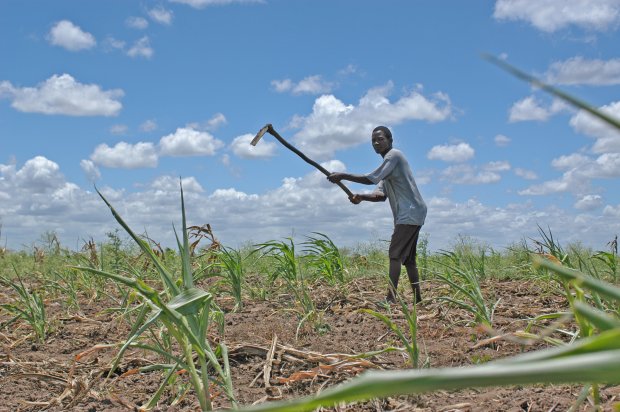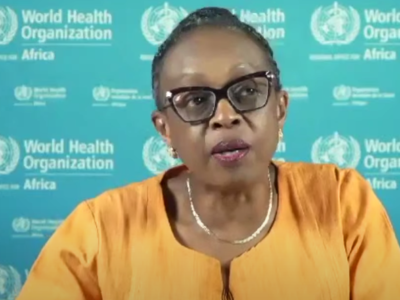
The Government of Uganda in 2015 submitted its Nationally Determined Contribution (NDC) to the United Nations Framework Convention on Climate Change (UNFCCC).
The government of Uganda should consider engaging the private sector to fund technologies needed for climate change adaptation.
Uganda, like other least developed countries has banked on the Green Climate Fund (GCF) for most of its climate adaptation and mitigation financing.
But James Haselip, a Senior Researcher with UN Environment Program’s Technical University of Denmark (DTU) Partnership says the private sector can equally fund adaptation technologies.
“Most countries are focused on Green Climate funding but it shouldn’t be seen as the only source of climate financing. There are other multilateral funds available. It is really important to collaborate with the private sector to harness private capital to steer markets to more sustainable low carbon climate resilient technologies” says Mr Haselip.
James Haselip is leading a team to Uganda to support for Climate Change experts to select or determine the country’s technologies for adaptation and mitigation against effects of climate change.
He was speaking to academics, climate experts at a workshop held at the Uganda National Council of Science Technology under the Technology Needs Assessments (TNA) Project. The project helps developing countries determine their technology priorities for mitigating and adapting to climate change.
James Haselip is leading a team to Uganda to support for Climate Change experts to select or determine the country’s technologies for adaptation and mitigation against effects of climate change.
He was speaking to academics, climate experts at a workshop held at the Uganda National Council of Science Technology under the Technology Needs Assessments (TNA) Project. The project helps developing countries determine their technology priorities for mitigating and adapting to climate change.
“With this mission in Uganda, we are launching the TNA projects. So we are engaging with experts to focus down what should be the priority sectors in this country. Everything must be aligned with the county’s NDC targets” he said.
The Government of Uganda in 2015 submitted its Nationally Determined Contribution (NDC) to the United Nations Framework Convention on Climate Change (UNFCCC).Uganda through the Nationally Determined Contribution (NDC) hopes to reduce emissions from its business-as-usual (BAU) scenarios by 22% by 2030 through mitigation and adaption. The World Bank estimate in 2016 that Uganda required cost approximately USD 7.80 billion for adaptation and mitigation. The government hoped that the funding would come from Green Climate Fund but it has not flowed as expected.
Many countries including Uganda are struggling to finance adaptation and mitigation even with proven technologies like solar water pumps on the market.Uganda National Council for Science and Technology, Deputy Executive Secretary, Dr. Maxwell Otim Onapa said the Technology Needs Assessments support will help Uganda to identify adaption technologies, assess barriers to their roll out.He admits that financing remains on of the biggest hindrance to roll out of some of the proven technologies.
The Government of Uganda in 2015 submitted its Nationally Determined Contribution (NDC) to the United Nations Framework Convention on Climate Change (UNFCCC).Uganda through the Nationally Determined Contribution (NDC) hopes to reduce emissions from its business-as-usual (BAU) scenarios by 22% by 2030 through mitigation and adaption. The World Bank estimate in 2016 that Uganda required cost approximately USD 7.80 billion for adaptation and mitigation. The government hoped that the funding would come from Green Climate Fund but it has not flowed as expected.
Many countries including Uganda are struggling to finance adaptation and mitigation even with proven technologies like solar water pumps on the market.Uganda National Council for Science and Technology, Deputy Executive Secretary, Dr. Maxwell Otim Onapa said the Technology Needs Assessments support will help Uganda to identify adaption technologies, assess barriers to their roll out.He admits that financing remains on of the biggest hindrance to roll out of some of the proven technologies.
“Uganda as a party to the conference has not been very successful in accessing funding from the Green Climate Fund. Part of the challenge is that we have not come out with an empirical way of prioritizing the technologies that we need. And we believe that by going through this process, we will come out with an empirical justification of the technologies that we need,” he said.
Dr. Maxwell Otim explained that from the Technology Action Plans, they will be able to develop bankable projects that can be funded by the private sector and the Green Climate Fund.











